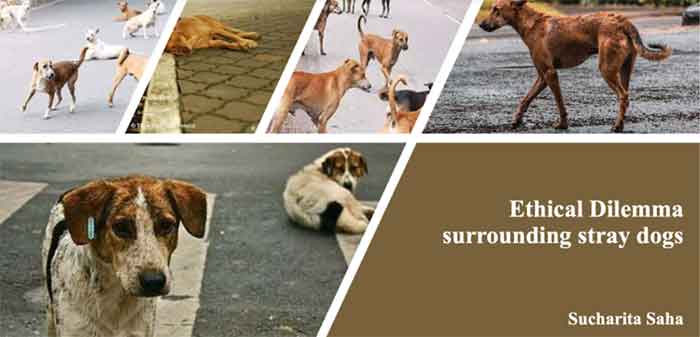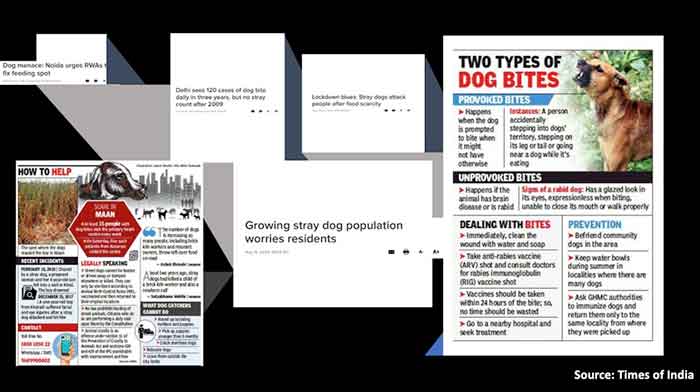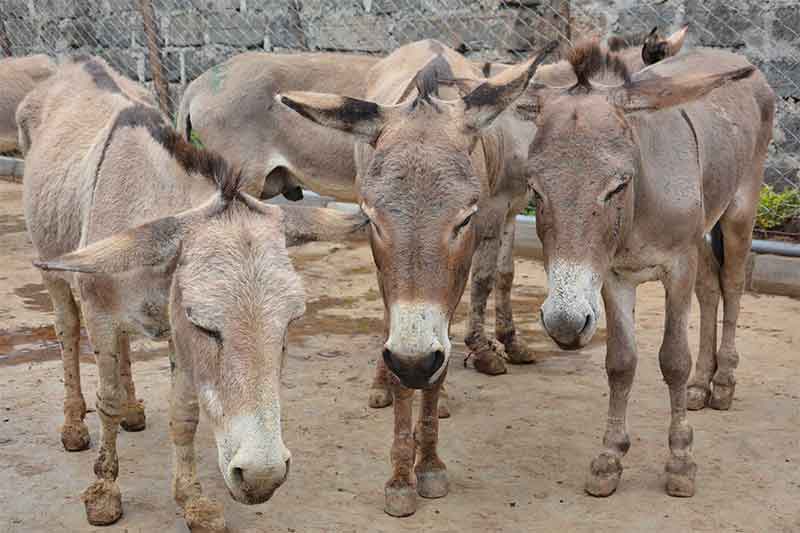
The genesis of the issue
I was privy to the public outcry regarding the menace of stray dogs when I saw a flurry of newspaper articles published by a leading daily regarding how dog bites were becoming more frequent, especially during the lockdown and people were forced to live in terror. This event triggered a chain reaction from other dailies and publications. Incidents of stray dog menace are not unheard of. Residents are frequently heard recounting their harrowing experiences of having been bitten by stray dogs, or being chased by them when carrying food or being snarled at while taking a walk.

While the agony of the people being harassed by dogs was understandable, what did not sit well with me was how requests started pouring in to make colonies ‘dog-free’ by killing the dogs, or asking dog lovers to take ownership of any untoward incident of animal menace. Animal lovers were also asked to adopt street dogs and restrict them to within the household. What struck me in particular was: while humans had civil rights to roam freely, do we possess the authority to curb such rights of other animals? Do human lives matter more than animal rights?
Private solution to a public problem
Trust a capitalistic society to suggest a private “solution” to the public menace of repeated instances of dog bites, which is to let a third (sufficiently-distanced) party do whatever it can to remove dogs – including putting them away quietly, or dumping them in garbage dumpsters to get rid of them. But this raises further questions:
>> Is this a sustainable solution to an ongoing issue? Will merely replacing the source of the problem solve the matter?
>> What happens when humans start fearing other animals, or even fellow humans? Do we start dumping all anti-social elements in garbage dumpsters?
>> Why do different categories of dogs get differential treatment? Why do some well-bred animals are seen as status symbols, and treated like family members, while others living on the streets are seen as social outcasts?
Law against killing of strays
Killing of stray dogs is punishable under the Prevention of Cruelty to Animals Act, 1960, which classifies torture and transporting them in a manner which causes them suffering, as cruelty. However, it only attracts a meagre fine of Rs. 100-500 or imprisonment upto three months.
Ethical dilemma surrounding the issue
Utilitarianism proposes maximum collective utility, even if it means ignoring the individual rights of a few. Utilitarian views of greater benefit to society might hold ground as it would lead to a ‘safer’ and pro-human society. However, looking at it from a Kantian standpoint, discrimination against stray dogs is morally wrong because it implies that we allow human race to matter more than the strays. Libertarian view states that acts of coercion on individuals by other individuals or government is unjust. Thus, according to libertarians, removal of dogs from our surroundings and dumping them in garbage mounds violates their fundamental right to life and dignity.
Since animals cannot bear duties, therefore, should they be allowed any rights?
The argument can be made that dogs have only a private space unless humans chose to create reserves for them. While it seems fair to ask animal lovers to bear the responsibility of adoption, the institutionalized hypocrisy comes from the law where we are asinine enough to believe that rights can be given without worrying about the concomitant duties.
To counter that, one can argue that dogs form an important link in the ecosystem. Without the dogs on constant vigil, there might be increased cases of theft or robbery in the neighbourhood. Moreover, the growing population of rats, snakes and monkeys would be difficult to control if we remove the dogs altogether from the ecosystem.
Furthermore, who are we to assign dogs any duties? Do they have the same capabilities as humans to expect of them to fulfill duties? Did we consult them before imposing duties upon them? Stray dogs are smarter, have better immunity and are known for their survival instincts. Can we expect a dolphin to run, a monkey to swim or a fish to crawl?
Are some learnings more ‘important’ than others?
Having grown up and think for myself, I’m now able to think about the injustices in society, despite being a part of a capitalist society. Should I surrender to the capitalist explanation of the problem? But then, what about the social principles being thrust upon us by the same society?
We domesticated dogs to benefit from their companionship, and have been responsible for increasing their population to this extent that we see strays as a menace to society now. While we also allowed the human population to grow and looked down upon policies that forcefully sterilized them (recall the imposition of the 1975 emergency and the outcry over forced sterilization), why do we have double standards for the rising population of dogs? While we destroyed their natural habitat and forced them to move to cities, how can we shoo them away like they are traded commodities?
Even from a capitalist point of view, how is it a solution to keep someone hungry and expect them to be friendly and calm? Even amongst humans, we see instances of violence or theft of food when they do not have means to buy food.
2020: The year of learnings
Having been forced to live inside our homes for months, we now have a hint as to how it feels to be trapped, to be devoid of one’s civil rights. In the same spirit, is it too much to expect of people to show empathy towards strays? Is there a way out other than capture them in municipality cages?
Possible solutions
The issue boils down to one of man vs. animal rights, and needs to be addressed by policy measures including proper vaccination and sterilization drives, dedicated feeding spots and a team of animal caregivers who could contact a nearby NGO in case a dog is seen to be ferocious and report the matter immediately. Notably, many NGOs and dog lover groups were feeding the strays at the start of the lockdown but eventually stopped because their resources dried up. Local government authorities should come forward to help in this regard, by enforcing stricter guidelines and offering financial support to feed the strays. We should look beyond seemingly easy fixes like mass killing or simple displacement of dogs from our society and treat the matter with humaneness.
Sucharita Saha is a student of IIM Ahmedabad
SIGN UP FOR COUNTERCURRENTS DAILY NEWSLETTER
















































